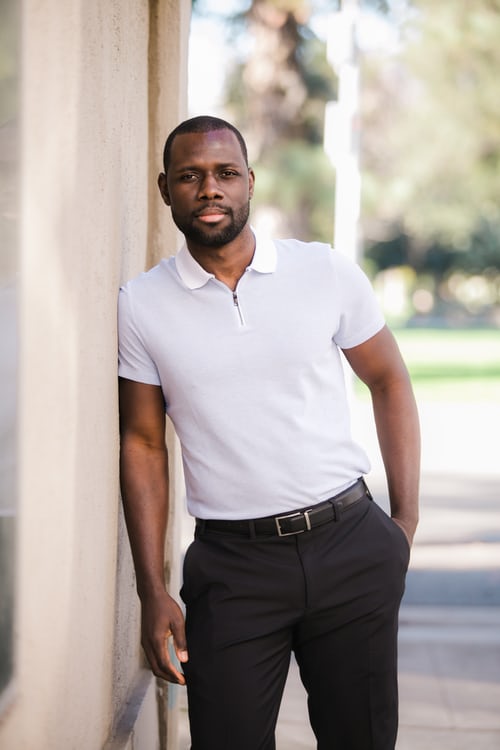Finishing Touches
You’ve already put a lot of work to getting to this point, so now let’s look at some strategies for before the interview. This will help you keep that positive momentum.
Confirming References
A reference is a person who can vouch for your skills, knowledge and experience as they relate to the jobs you apply for. Employers often check applicant references in order to verify statements you made in your resume or interview. Speaking with people who are familiar with your work can provide reassurance to the employer about your past responsibilities, work ethic, professional behaviour, skills and dependability.
There are plenty of people you can ask to be a job reference for you. What’s most important is that your references are willing and able to say positive things about you and your work. Just remember to always get permission before listing anyone as a reference. Call and ask the person if they would be comfortable speaking positively about you as a reference, adding “I completely understand if you have a policy against giving references” (this gives the person a way to politely decline if they are unsure).
Here are some people you might consider asking:
-
- a past or current supervisor
- a trusted coworker
- a former professor, lab instructor, advisor, or coach
- someone you’ve volunteered for (or with)
- a former client
- a former classmate
- a peer who served on a team with you
Prepare your list of 3-4 references in advance and be prepared to provide them upon request, such as during an interview. Have both a hard and a soft copy prepared. This should be in the form of a one-page document with your name and contact details at the top, consistent with your resume and cover letter. Then, under the heading References, list each reference along with the following information: name, job title, company, phone, email, and relationship. Here is an example of a reference sheet:
Moira Scott
123 Fakestreet, Markham, Ontario, L3R6U9
(705) 555-7700
References
Nicole Chen
Director of Engineering
Moonbeam Inc.
(705) 555-7777
Nicole was my direct manager from 2016 to 2018 when I worked as a software developer for Moonbeam Inc.
Kwame Nelson
Front-End Software Engineer
Softwerks Co.
(705) 555-0000
Kwame is an engineer I collaborated with daily in my recent work placement at Softwerks Co.
Dr. Cooper Moore
Professor of Computer Science
Provincial University
(705) 555-7770
Cooper was my professor in 3 classes and my faculty advisor for my computer science degree.
If you have been asked for your references or called for an interview, be sure to let your references know. This allows them to prepare to be contacted and prevents them from being caught off guard. This is also a good time to thank them once again for agreeing to act as a reference and to let them know about the job you’ve applied for. Giving your references a heads-up ensures they can be well-prepared to help you by providing a reference that supports your candidacy for the target job.
Displaying Confidence
Even after considerable planning and preparation, many people get nervous at the prospect of engaging in a job interview. This is natural! To start with, remember that interviews are a 2-way street: not only is the employer seeking to learn if you are a fit for them, but you are also seeking to learn if the employer and job will be a fit for you!
 If your interview is in person and there are no social distancing measures currently being enforced, offer a firm handshake to each person taking part in the interview. Remember to smile, make eye contact, and to use the person’s name when greeting. Check out this video on the Dos and Don’ts of interview handshakes.
If your interview is in person and there are no social distancing measures currently being enforced, offer a firm handshake to each person taking part in the interview. Remember to smile, make eye contact, and to use the person’s name when greeting. Check out this video on the Dos and Don’ts of interview handshakes.
Don’t be put off if you offer a handshake and it is declined. For some cultures, shaking hands is not appropriate. If you wish to politely decline a handshake yourself, try simply putting your hand to your chest with a smile.
The best way to establish confidence in your interviewing ability is practice! Don’t just read and write about interviewing skills – find a way to actually practice going through the interview process. The act of rehearsing “out loud” will help reveal considerations you may not have thought about. Here are some ideas:
- Find a friend to help you: They can play the part of an interviewer and conduct a mock interview with you. They might also be able to give you some advice on the way you present yourself and whether your answers are clear and compelling. “A mock interview helps you learn how to answer difficult questions, develop interview strategies, improve your communication skills, and reduce your stress before an actual job interview.”[1]
- Block off some time before and after your interview to gather your thoughts.
- Before your interview, take a few moments to think about what calms you and gets you in a confident, peaceful mind space. This might be a brief meditation, a short walk outside, or a quick pep talk from a friend.
- Try the Power Posing hack! Check out this TED Talk video about body language and power posing for confidence.
- Try the STOP mindfulness exercise:
- S = Stop what you’re doing.
- T = Take a few deep breaths to bring yourself fully into the present moment.
- O = Observe what’s going on with your body, feelings, and thoughts. What physical sensations are you experiencing? What assumptions are you making?
- P = Proceed with your activities, making an intentional choice to incorporate what you just learned.
When answering interview questions, do not feel compelled to rush quickly into your answer. It’s okay to take time to think before responding. If needed, you can also ask the interviewer to repeat a question or to skip the question temporarily and return to it later in the interview.
Dress for Success
Do not wait for the day of the interview to think about your appearance. Like it or not, the way we present ourselves visually forms impressions in the mind of an interviewer. Your appearance for an interview should be designed to make a positive impression while keeping the focus on you. In other words, you do not want anything distracting from your performance. You want your professional look to support your conversations, not overpower or distract from them.
The first thing to think about is your clothing. What you wear depends on the workplace you’re looking to join: dress for the work environment (is it Business Formal, Business Casual, or Casual?). Generally, there are 3 Categories of Business Dress:

Business Formal
- usually a matched suit (skirt suit or pantsuit)
- collared shirt or blouse, white or plain in colour
- darker colours, which tend to look more formal

Business Casual
- Dress pants or skirt
- Dress shirt
- Optional: jacket or sweater

Casual
- Casual pants and skirts
- Shirts with or without a collar, T-shirts without logos
MORE TIPS:
-
- If possible, find out the dress code of your target workplace. Then, take it one level up for the interview. In other words, err on the side of more formal: dress 20% better at an interview than you would on the job itself.
- Dress in clothes that make you feel good: you will project yourself more confidently.
- Try on your outfit: does it fit? Is it clean, in good repair, and wrinkle free?
- Are your shoes clean and polished?
- Practice good hygiene (clean body, hair, teeth, good breath). Are your hair and fingernails clean and well groomed?
- Don’t wear fragrances (perfume/cologne) as others may be sensitive.
- Keep accessories (hair, make-up, jewelry, etc.) to a minimum.
Media Attributions
- Lightbulb via Careerspace
- person standing near the stairs by Hunters Race via Unsplash
- man in white polo shirt and black pants standing beside white wall during daytime by Fortune Vieyra via Unsplash
- A group of friends at a coffee shop by Brooke Cagle via Unsplash
- https://www.thebalancecareers.com/how-to-use-mock-interviews-to-practice-interviewing-2061626#:~:text=A%20mock%20interview%20helps%20you,a%20formal%20list%20of%20questions ↵

